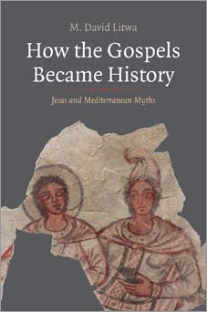 Richard Carrier has posted his response to David Litwa’s chapter that professes to be addressing the Christ Myth theory:
Richard Carrier has posted his response to David Litwa’s chapter that professes to be addressing the Christ Myth theory:
I also posted on the same chapter by Litwa:
Carrier’s post comes with a much more lively and colourful style than mine.
If you enjoyed this post, please consider donating to Vridar. Thanks!

“Carrier’s post comes with a much more lively and colourful style than mine.”
Uh oh. Let me guess. He says something like Litwa didn’t read his book, Litwa is lying or insane/delusional?
I do sympathize with Carrier, though. Litwa comes across as having relied more heavily on the misinformation peddled by Gathercole and Gullotta (and perhaps McGrath?) than anything he would have been expected to read in Carrier’s book for himself.
Dr. Carrier gives en passant a surprisingly strong confutation of Norelli’s view that the “pocket gospel” was found in the original Ascension of Isaiah.
In 9.14 “they” are demons:
And the god of that world will stretch forth his hand against the Son, and they will crucify Him on a tree, and will slay Him not knowing who He is.
…while, in the pocket gospel, “they” are the “children of Israel”:
And after this the adversary envied Him and roused the children of Israel against Him, not knowing who He was, and they delivered Him to the king, and crucified Him, and He descended to the angel (of Sheol). (11:19)
How could prof Norelli escape that detail so fatal to his thesis ?